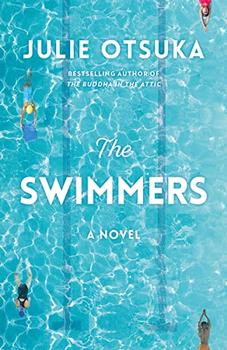Summary | Excerpt | Reviews | Beyond the Book | Read-Alikes | Genres & Themes | Author Bio

A novel
by Julie OtsukaThis article relates to The Swimmers
In Julie Osaka's novel, The Swimmers, one of the main characters suffers from memory loss due to dementia.
The Mayo Clinic defines "dementia" as "a group of symptoms affecting memory, thinking and social abilities severely enough to interfere with your daily life." It's not one disease, as many different conditions can cause dementia. It's debilitating and progressive, and no form of the malady can be cured at this time (although new treatments may be able to slow a person's decline in some instances). Dementia is caused by damage to or loss of nerve cells in the brain, and symptoms vary depending on which part of the organ is impacted.
Fifty-five million people worldwide are living with dementia, and an additional 10 million cases are diagnosed each year. According to the World Health Organization (WHO), it's the seventh leading cause of death from all diseases, and one of the major causes of disability and dependency among older individuals. This insidious condition affects not only the person afflicted by it, but also their caregivers and family members.
Although Alzheimer's disease is the most common form of dementia, contributing to 60%-80% of cases each year, the main character in The Swimmers suffers from frontotemporal dementia (FTD). This condition was formerly called "Pick's Disease," named after Dr. Arnold Pick who first described it in 1892. It's characterized by the deterioration of the brain's frontal or temporal lobes. The frontal lobes are located directly behind the forehead and influence voluntary movement and expressive language. They are responsible for managing higher-level executive functions such as the ability to organize or plan. The frontal lobes control behavior and emotions, and are considered the "home" of someone's personality. The temporal lobes sit behind the ears and are involved with learning and retaining non-verbal information, like recognizing sounds or faces. They also affect how the brain stores and retrieves memories and other information.
FTD can only be diagnosed by a doctor, who may use neurological tests and scans to help narrow down the type of dementia the person is experiencing. In about a third of FTD cases, the disease is inherited, so genetic screening is usually a part of the diagnosis. Other than genetics, there are no known risk factors that contribute to the likelihood of developing FTD.
There are also no treatments for the disease. There are medications that can help manage some of the symptoms, such as agitation or depression, but there's no cure, and nothing that will stop a person's physical and mental decline. The speed with which someone's condition deteriorates varies from person to person, and can take anywhere from a year or two to decades. The disease eventually causes death due to illnesses associated with physical decline, such as pneumonia.
In the early stages of dementia, many of those afflicted try to "fake it" — they know something is wrong and they're forgetting things, but they attempt to carry on as normal. As the condition progresses, a person may develop strategies to cope, like using notes, journals, or checklists to help them remember things; but most individuals with dementia will ultimately require skilled nursing care.
Some risk factors for dementia can't be changed, such as age and family history, but recent research suggests that some lifestyle choices may impact one's likelihood of developing it. Scientists suggest drinking alcohol and smoking are potential contributors, as are cardiovascular disease, depression, diabetes, air pollution, head trauma and vitamin deficiencies. Maintaining a healthy diet, exercising routinely, and keeping one's mind active are steps one might take to lessen the risk of developing dementia.
Filed under Medicine, Science and Tech
![]() This "beyond the book article" relates to The Swimmers. It originally ran in March 2022 and has been updated for the
January 2023 paperback edition.
Go to magazine.
This "beyond the book article" relates to The Swimmers. It originally ran in March 2022 and has been updated for the
January 2023 paperback edition.
Go to magazine.
Your guide toexceptional books
BookBrowse seeks out and recommends the best in contemporary fiction and nonfiction—books that not only engage and entertain but also deepen our understanding of ourselves and the world around us.